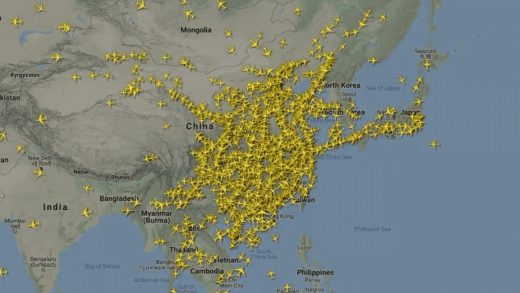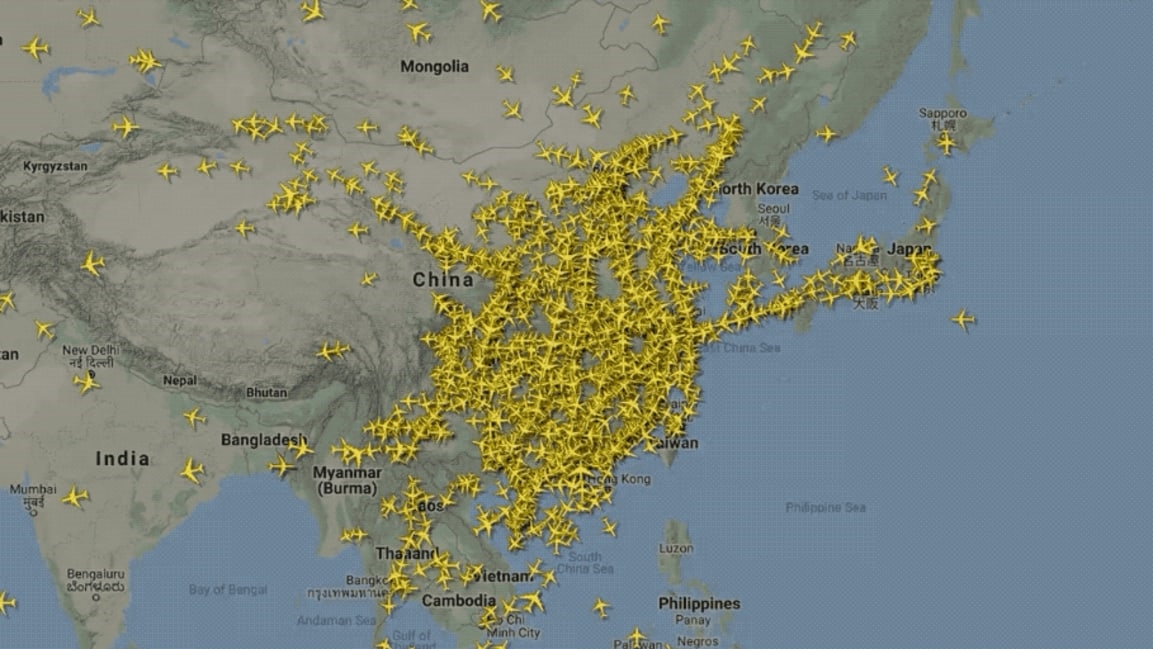Watch flight traffic literally disappear from the skies as the coronavirus hits travel demand
As the new coronavirus that causes COVID-19 continues to spread in the United States, major American carriers such as United Airlines and JetBlue have begun to cut domestic flights and even waive some fees for flight changes. Globally, new restrictions on travel and general anxiety about being in close quarters with other human beings are wreaking havoc on flight traffic—to the point where the International Air Transport Association now expects industry losses of up to $113 billion, according to fresh estimates released today.
None of this will be especially new news to air travelers in China, where the coronavirus first began to spread late last year. According to data from flight-tracking service Flightradar24, air traffic at China’s 50 busiest airports is down a staggering 80% since the beginning of the year. The country, which instituted a series of severe quarantines and draconian city lockdowns after the outbreak took hold, is usually among the most air-congested in the world.
But a time-lapse GIF shared by Flightradar24 on Twitter this afternoon shows the tracker’s bright yellow airplane icons literally disappearing from the skies. It’s a compelling sight to behold:
Flights to/from China’s 50 busiest airports at Noon local time in 1 week intervals from mid-January through this week.
Flight numbers are increasing once again, but still down 61% from their peak in the 3rd week of January.
More data: https://t.co/yEHlXuL1ED pic.twitter.com/fpGBriDy4P
— Flightradar24 (@flightradar24) March 5, 2020
One bright spot in the GIF is that it indicates the worst may be over for China, with the biggest dip in air traffic appearing around the middle of February. It’s since recovered a bit, according to Flightradar24, even if flights are still down 61% from where they were in January.
All of this is a reminder that the world is more interconnected than it’s ever been, and all the various infrastructures that keep those connections going are entirely more fragile than we realize.
(59)



